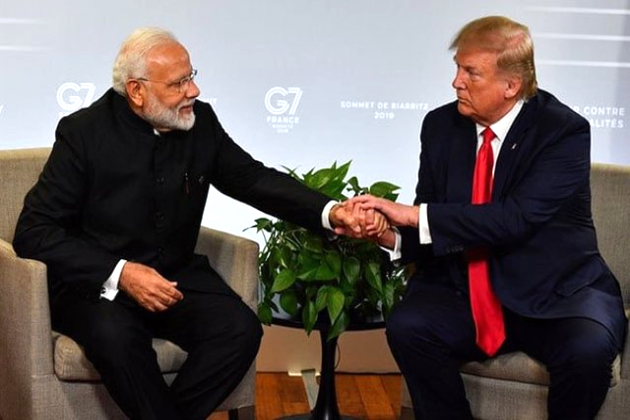Ritual murder of children: study in Ghana and Kenya explores who's doing it and why
The Conversation
15 Apr 2025, 14:05 GMT+10

Superstition, an irrational belief in paranormal influences or a false attribution of events, is an age-old phenomenon found in probably all human societies or cultures. It encompasses a wide range of beliefs, practices and behaviours. Some of these have harmful or even deadly consequences.
In many African communities, there are widespread beliefs relating to the use of human body parts for traditional healing rituals. Human body parts and blood are said to enhance the potency of traditional medicines and rituals that supposedly guarantee wealth, business success, fertility, protection and longevity, among others.
Ritual killings, including those of children, are reported regularly around Africa. A case in point is the targeting of children with albinism for ritual purposes in Tanzania. One research report says one in five people in Mozambique and one in four people in South Africa believe that rituals and traditional medicines made with human body parts are more potent and effective than those using nonhuman objects.
Children are particularly targeted for killing because they can't repel attacks, and because of beliefs about the potency of their body parts. The victims in more than half of all the ritual murders reported in Ghana and Kenya in 2022 were children.
I am a legal scholar with years of research on superstition-driven crimes against vulnerable groups in African settings and the criminal justice response to such crimes. In a recent study I explored the magnitude, characteristics and motivations, as well as the socio-cultural and economic contexts, of ritual child murder in Ghana and Kenya. My study was carried out through in-depth analysis of news reports of ritual murders for a period of 10 years, coupled with semi-structured interviews with academics and other experts.
I found that the major factors contributing to the persistence of ritual child murders were superstition, economic hardship, illiteracy and inefficient criminal justice systems. A new consumerist ethos also plays a role: wanting a life of luxury and the admiration that comes with it.
The study seeks to enhance awareness of the ritual child murder phenomenon and encourage support for the enforcement of child rights protection laws. When policymakers know more about the scale and circumstances of ritual child murders, they are better equipped to act on it.
Belief in juju is widespread in Ghana and Kenya. This is the belief that people can mystically control events by using incantations ("magic words") and, sometimes, objects.
My study analysed data drawn from online news reports in eight media outlets in Ghana and Kenya. I used media content because the countries don't have national data sets on ritual homicide, and empirical research is limited. Secondly, I interviewed 28 experts in criminology and criminal justice, sociology, African religions, and child and family welfare and social protection. These participants were selected using the purposeful sampling technique.
In Ghana, the media reported at least 160 ritual murders between 2012 and 2021. Of this number, 94 (about 58.8%) were children. This suggests that an average of 9.4 children fall victim to ritual murder each year in the country. Of the 102 ritual murders in Kenya in the study period, 66 (64.7%) were children. This represents an annual average of 6.6 in the country.
In both countries, most victims (over 80%) tend to be drawn from families of low socio-economic backgrounds in rural and semi-rural communities. In Kenya, children with albinism are also targeted.
The overwhelming majority of offenders are males. There are three main categories of perpetrators of ritual child murders:
the juju practitioner or traditional healer who usually prescribes the required body parts and effects the medicine or ritual
the client who consults traditional healers and stands to benefit directly from the ritual or medicine
the (hired) ritual murderer, who abducts the victim and extracts the required body parts.
Data from media reports show that most of the perpetrators apprehended are those directly involved in the killing. They are usually aged between 20 and 39 years and of low socio-economic status in rural communities. However, some interviewees insisted that some rich and prominent persons are also involved.
In Ghana, uncles, fathers and stepfathers were the dominant perpetrators in cases where victims and perpetrators were known to be related. Unlike other types of homicide, ritual child murder generally involves strangers nearly as often as it involves family members and acquaintances.
The dominant motivation for ritual murder is financial gain. This conclusion is drawn from the media accounts and the interviews. Perpetrators are promised money in exchange for specific human body parts. Others kill to use the body parts for rituals that are supposed to ensure a long life, fertility, business growth, or protection against evil. In Kenya, some perpetrators kill in fulfilment of their obligations as members of occult sects.
Other factors that sustain the practice - based on media reports and interviews - are superstition, unemployment and economic hardship. Adding to these are illiteracy, which fosters unfounded beliefs, and an inefficient criminal justice system, which enables these crimes to thrive.
Poor parental supervision is an important risk factor for ritual child murder. In both countries, over 70% of the ritual murder victims were under 10 years old. They were abducted or murdered while going to or returning home from school. Others were abducted while running errands such as fetching water from a stream unaccompanied. Some may have been playing outside their homes unsupervised, or running errands by themselves for relatives.
In both countries, the criminal justice system's response is evidently ineffective. In Kenya, over 90% of perpetrators are not apprehended. Of 68 suspects arrested in Ghana, only four convictions were reported. Crime scenes are poorly managed and preserved by police officers and detectives in both countries.
Crime scene videos show the victims' remains being removed by authorities and conveyed to the morgue without diligent forensic examination of the body and the crime scene for evidence.
The belief in the power of juju and associated rituals and medicines cannot be wished away. It can only be combated in various ways:
bringing the activities of traditional healers and occult-related sects under closer scrutiny
promoting education and awareness, emphasising the need for supervision of children
stronger criminal justice systems.
 Share
Share
 Tweet
Tweet
 Share
Share
 Flip
Flip
 Email
Email
Watch latest videos
Subscribe and Follow
Get a daily dose of Africa Leader news through our daily email, its complimentary and keeps you fully up to date with world and business news as well.
News RELEASES
Publish news of your business, community or sports group, personnel appointments, major event and more by submitting a news release to Africa Leader.
More InformationInternational
SectionUS Defense Secretary Pete Hegseth Cancels $5.1B IT Contracts
WASHINGTON, D.C: U.S. Defense Secretary Pete Hegseth has canceled several technology service contracts worth US$5.1 billion. These...
Trump proposes legal path for undocumented farmworkers
WASHINGTON, D.C: U.S. President Donald Trump said this week that farmers might be allowed to ask the government to keep some farmworkers...
Xi Jinping shifts focus to Southeast Asia amid US tensions
BEIJING, China: As tensions with Washington deepen, Chinese President Xi Jinping is turning his focus to Southeast Asia, with a diplomatic...
LA County offers free lead tests near wildfire burn zones
PASADENA, California: Because many people are worried about dangerous chemicals in smoke, ash, and debris from recent wildfires, Los...
Trump lifts shower pressure limits to protect 'beautiful hair'
WASHINGTON, D.C.: President Donald Trump, who had often complained about weak water pressure in showers, has signed an order to remove...
Apple airlifts iPhones from India to dodge new US tariffs
NEW DELHI, India: Apple has ramped up shipments of iPhones from India to the United States, chartering aircraft to move hundreds of...
Business
SectionWall Street closes Tuesday with minor losses
NEW YORK, New York - U.S. stocks ended with minor losses on Tuesday as investors and traders continued to navigate markets with continued...
GM to press pause on EV van production in Ontario
DETROIT, Michigan: General Motors is hitting pause on production of its BrightDrop electric vans in Ontario, Canda, citing the need...
China, EU talks could pave the way for price resolution
BERLIN, Germany: Talks between the EU and China could pave the way for a shift from tariffs to minimum price agreements on Chinese...
Tesla stops China Orders for US-made models amid trade tensions
BEIJING, China: Tesla has halted new orders in China for its two U.S.-made premium models as trade tensions between Washington and...
Wall Street marches higher on Trump tariffs reprieve
NEW YORK, New York - Automakers and tech companies helped to lift U.S, stock indices Monday as stock markets around the world saw a...
India seeks to fast-track US trade deal after tariff pause
NEW DELHI, India: India is pushing to fast-track a trade agreement with the United States following a temporary pause on new tariffs,...













